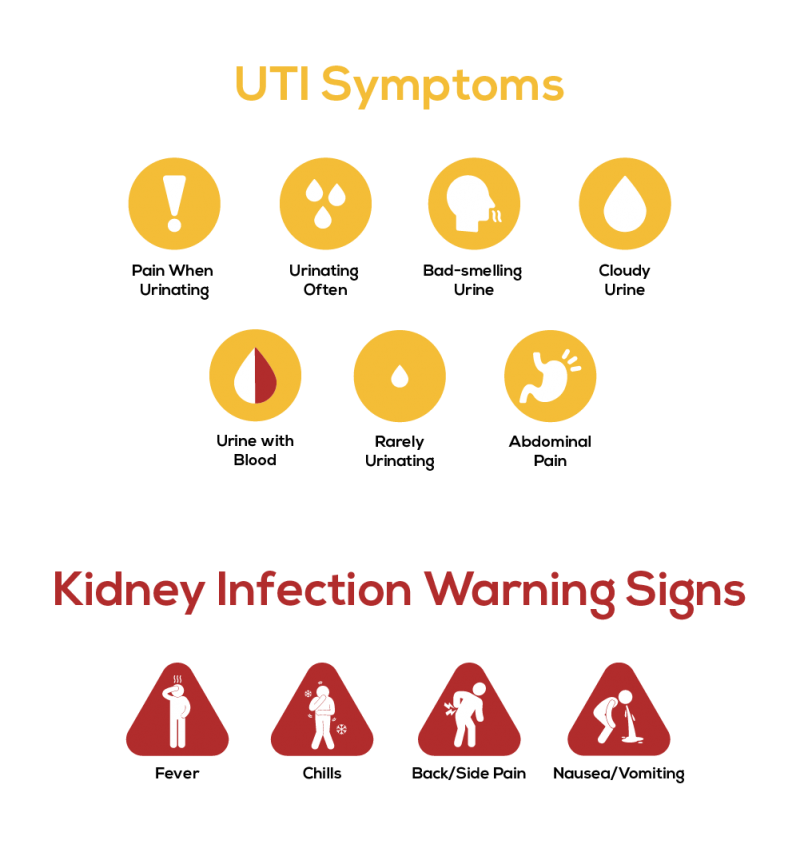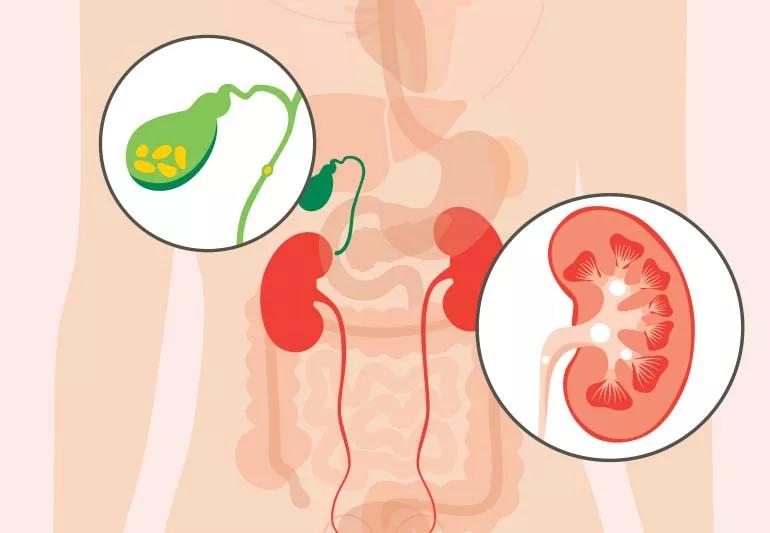Exactly how to Distinguish In Between Kidney Stones vs UTI: Trick Aspects and Diagnostic Tips
Exactly how to Distinguish In Between Kidney Stones vs UTI: Trick Aspects and Diagnostic Tips
Blog Article
Exploring the Effects and Causes of Kidney Stones in Comparison to Urinary Tract Infections: A Detailed Overview
The expedition of kidney stones and urinary tract infections (UTIs) reveals a complicated interaction of signs and underlying causes that call for cautious assessment. While both conditions can lead to hematuria, they present unique clinical features and occur from various etiological variables. Recognizing the nuances of each condition is essential for effective diagnosis and management. What are the key differences in their signs, and just how might these inform therapy approaches? The solution to these inquiries may give important insights into the avoidance and treatment of these usual urological problems.
Summary of Kidney Stones
Kidney rocks, also called kidney calculi, type when specific compounds in the pee crystallize and aggregate, leading to the development of tough down payments within the kidneys. These rocks can differ in dimension, varying from a grain of sand to a golf sphere, and can be made up of different products, one of the most common being calcium oxalate, uric acid, struvite, and cystine. The formation of kidney stones is affected by numerous elements, including dietary habits, liquid intake, and genetic predisposition.
Signs and symptoms of kidney stones might include extreme pain in the back or side, blood in the urine, nausea or vomiting, and regular peeing, particularly as the rock moves through the urinary system tract. Diagnosis normally involves imaging researches such as ultrasound or CT scans, together with urinalysis to identify the stone's make-up.
Treatment options vary based upon the size and kind of stone, as well as the severity of symptoms (Kidney Stones vs UTI). Small rocks may pass normally with raised fluid intake, while bigger stones might call for medical treatments such as lithotripsy or medical elimination. Comprehending the pathophysiology and threat aspects related to kidney stones is important for effective prevention and management
Summary of Urinary System System Infections
Urinary system tract infections (UTIs) are common bacterial infections that affect any type of component of the urinary system, including the kidneys, ureters, bladder, and urethra. They mainly take place when bacteria, often from the stomach tract, go into the urinary system, resulting in inflammation and infection. UTIs are classified into two major kinds: difficult and uncomplicated. Uncomplicated UTIs commonly occur in healthy and balanced individuals with normal urinary tracts, while complex UTIs may develop in people with hidden problems, such as structural irregularities or endangered body immune systems.
The occurrence of UTIs is notably greater in women than guys, largely as a result of anatomical differences, such as a shorter urethra. Threat aspects consist of sex, specific contraceptive techniques, urinary retention, and dehydration. The medical diagnosis of UTIs is typically validated via pee tests, which might disclose the existence of bacteria, leukocyte, or red blood cells.

Signs And Symptoms of Kidney Stones
The pain associated with kidney stones can manifest in various ways, frequently leading people to seek medical attention. One of one of the most common signs and symptoms is serious pain, commonly local in the reduced back or side, which might emit to the abdominal area or groin. This discomfort, usually referred to as sharp or cramping, can take place unexpectedly and may rise and fall in strength.
Additionally, individuals may experience hematuria, or blood in the pee, which can vary from microscopic amounts to visible discoloration. This signs and symptom may be gone along with by changes in urinary system routines, such as raised regularity or urgency, in addition to discomfort throughout peeing. Nausea and throwing up are likewise common, typically arising from the body's reaction to extreme discomfort.
Sometimes, individuals might experience fever and cools, especially if an additional infection creates due to the blockage brought on by the rocks. In general, the mix of extreme pain, hematuria, altered urinary system patterns, and intestinal signs and symptoms can offer substantial insight right into the visibility of kidney stones, requiring timely medical assessment and intervention. Understanding these signs is vital for prompt medical diagnosis and effective management of the problem.
Signs of Urinary Tract Infections
Infections within the urinary system frequently provide a variety of distinct signs that can dramatically affect day-to-day live. One of the most usual signs include a consistent desire to pee, frequently accompanied by a burning feeling during urination, known as dysuria. Individuals may likewise experience increased regularity of peeing, creating little amounts of urine each time.
Other significant symptoms consist of gloomy that site or foul-smelling pee, which might suggest the visibility of bacteria or pus. In many cases, urine might appear pink or red due to the existence of blood, a problem understood as hematuria. Additionally, individuals might experience pelvic discomfort or pressure, which can additionally aggravate the feeling of necessity.
Systemic symptoms might also show up, such as high temperature, cools, and tiredness, particularly if the infection has actually risen to the kidneys. It is important to identify these signs and symptoms early, as untreated urinary system infections can cause much more serious issues. Kidney Stones vs UTI. Prompt clinical interest is encouraged when these signs are observed, permitting for ideal diagnostic assessment and therapy to alleviate pain and avoid further wellness problems
Root Causes Of Each Condition
Regularly, kidney rocks and urinary system infections develop from distinctive yet occasionally overlapping reasons that can impact people in different ways. Kidney rocks usually create as a result of metabolic elements, dietary selections, and hereditary proneness. Raised degrees of calcium, oxalate, or uric acid in the pee can lead to rock formation. Dehydration, inadequate fluid intake, and high-sodium diet plans can worsen these conditions, advertising formation within the urinary system system.

Understanding these distinctive reasons is crucial for prevention and therapy. Kidney Stones vs UTI. While way of life modifications might alleviate the risk of kidney rocks, suitable health and timely treatment of urinary system system infections are necessary for decreasing their reappearance and associated complications
Verdict
In recap, kidney rocks and urinary system system infections present distinct signs and symptoms and underlying reasons. Kidney stones are identified by extreme discomfort and metabolic variables, while urinary system infections mostly entail microbial infections bring about urinary system necessity and pain. Although both problems can lead to hematuria, their development devices differ dramatically. Recognizing these distinctions is crucial for Check Out Your URL reliable diagnosis and therapy, inevitably enhancing client outcomes for those influenced by either condition.
The exploration of kidney rocks and urinary tract infections (UTIs) discloses a complicated interplay of signs and underlying reasons that warrant mindful exam.Urinary tract infections (UTIs) are typical bacterial infections that impact any kind of component of the urinary system, consisting of the kidneys, ureters, bladder, and urethra.Often, kidney stones and urinary system system infections develop from distinctive yet in some cases overlapping reasons that can impact individuals in a different way.In summary, kidney rocks and urinary system infections existing distinct signs and underlying reasons. Kidney stones are identified by extreme discomfort and metabolic factors, while urinary tract infections mainly involve microbial infections leading to urinary necessity and pain.
Report this page